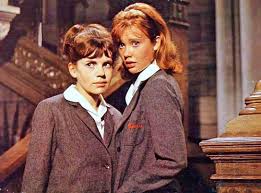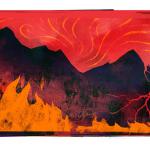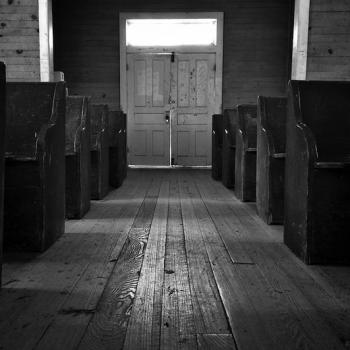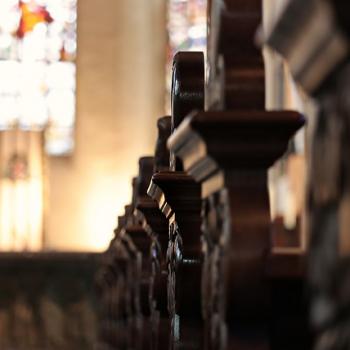
Caw-caw, caw-caw, I call out. Caw-caw, my son answers. I am standing in the kitchen finishing dinner, and my son (almost five) is sitting at the dining room table listening to a kids’ podcast and messing around with colored pencils. We have a running banter, my child and I, made of snatches of song and sound, lines from books and play on words. I’m calling out to him from my childhood, a “come and find me” crow call that my friend Lisa and I used to do at the university apartments when our parents were both in graduate school and we would skulk around outside for hours, chewing on carrots and saying, “What’s up, doc?” Naming dandelion seeds and seeing how far we could follow them on the wind. Hatching plans. We were like a Wes Anderson movie, if those movies had the girl’s perspective at the center. We were a movie that hasn’t been made yet.
Many of the pieces in my book of prose poems and micro-memoir, The Itinerant Girl’s Guide to Self-Hypnosis, explore that complex bundle of weirdness, sadness, humor, and witness that, to me, was childhood. Here is one of the pieces:
It’s true, I could be a lyrical child, kneeling under the dogwoods in dappled light and breeze to channel messages, when the air spoke in murmurs like dreaming. Other times, I wasn’t that. I lied about small things, stole candy, pretended to sleepwalk, threw a plate of spaghetti at the side of the house. I had a manual typewriter and used it for yellow journalism and blaming notes to my mother. I made up stories after lunch to spook the kids at school, working at their minds until a chink opened. I did strange magic at slumber parties, getting everyone half-hypnotized and muted to the spot. Light as a feather, stiff as a board.
I suppose that in the back of my mind I always thought that if I had a child, it would be a girl, and I could witness her jauntiness and make space for it. Having had a child, my interest in the psychic space of childhood has shifted from picking up my own memories like split-open semi-precious stones and studying them, to witnessing an actual living person in front of me. But having had a son, my interest in the space of girlhood, specifically, is still mostly focused on my own memories. Pippi Longstocking, Little Orphan Annie, Hayley Mills in The Trouble with Angels, Ramona Quimby, The Great Gilly Hopkins. So much of my girlhood was shaped by the figure of the odd-child-out, stubbornly clinging to her personhood, to her humor. This, to me, is what girlhood offered. A chance to find that seed of stubbornness and humor, to hold on to that kernel despite it all.
As I read the news this week about the girls and young women who survived sexual abuse perpetrated by a renowned doctor, I am thinking about the devaluing of our girls and women, about the colossal failures of empathy (on the part of the abuser and the enablers of abuse) that would make such acts possible. It is a failure of what psychologists might call “perspective-taking,” or the ability to imagine another’s experience. A cruel, willful series of failures. As a mother of a son, I think often of how I am to help him develop empathy, to help him grow up to see the female humans around him as humans with their own experiences of the world. And as a mother and a former girl, I am continually perplexed and disgusted by the inability of adults in our world to see girls as humans with their own experiences, worthy of protection from abuse, but even more than that, worthy of respect and admiration. Worthy of being witnessed.
For now, my son listens to the Ramona audiobooks compulsively. He tells me that he saw a bird that fanned out his tail when it took off to fly, and he wants to look it up in the bird guide. Then he corrects himself. “Fanned out his or her tail.” Will literature save us, will language? All I know is that it is a way of taking perspective on the world, a way of helping build empathy. We create wide nets of language and humor and understanding, my son and I. We talk, we laugh, we struggle, many times, to understand, to empathize. We each hold on to our own nuggets of stubbornness and humor, and love each other in our weirdness, in our complex humanness. I am hoping, through books, through discourse, through play, to create the space to help him understand that other humans, even girls, are having their own complex, weird, interesting experience of the world. And he is helping me understand the possibilities of boyhood. Of human childhood, no matter the gender. Caw-caw, caw-caw, one of us calls out. I am here. Are you here? Caw-caw, the other answers. Yes. I hear you. I’m here, too.
Joanna Penn Cooper is the author of The Itinerant Girl’s Guide to Self-Hypnosis (Brooklyn Arts Press), a book of lyrical shorts, and What Is a Domicile (Noctuary Press), a book of poems. She lives in Durham, North Carolina. She curates the “Approaching Mystery” series for Sick Pilgrim, publishing flash essays by writers encountering the unseen, the uncanny, and the unresolvable.
Read more at http://www.patheos.com/blogs/sickpilgrim/2017/12/approaching-mystery-joanna-penn-cooper-stares-puddle/#jvtMezUvi1Eu7iBa.99












